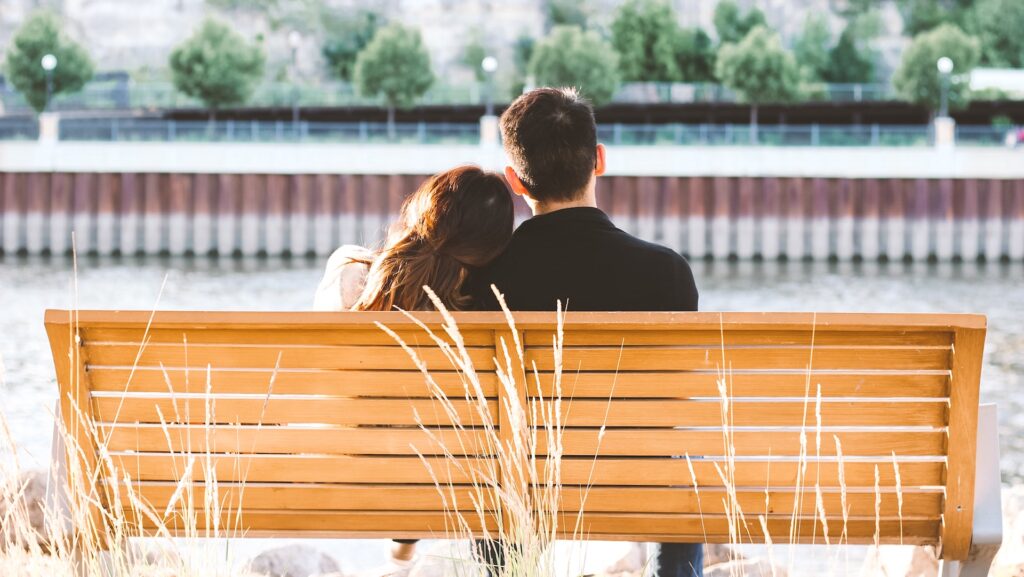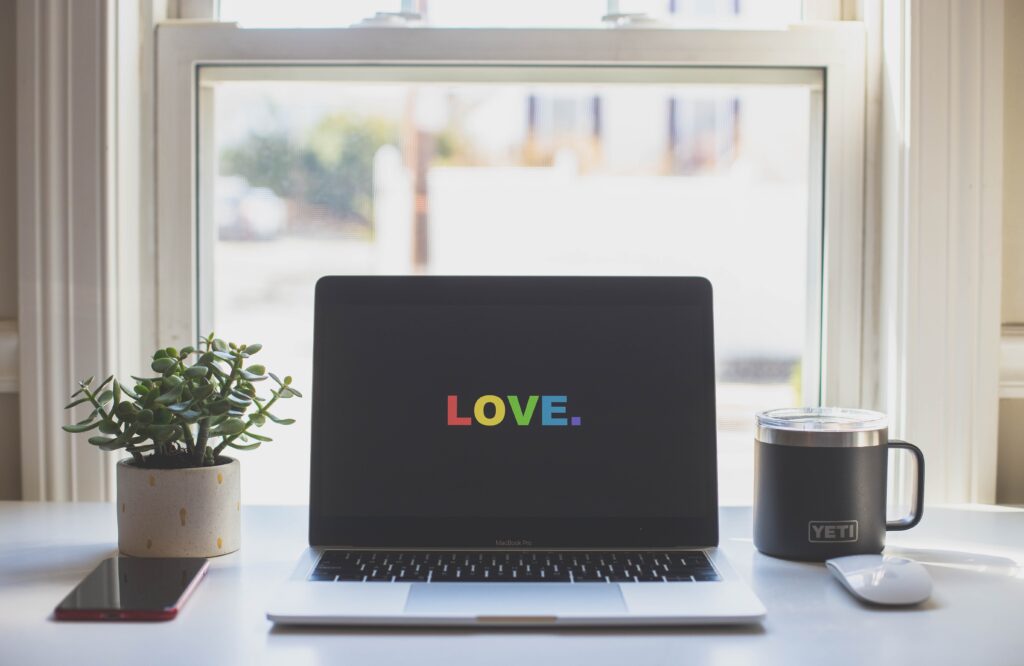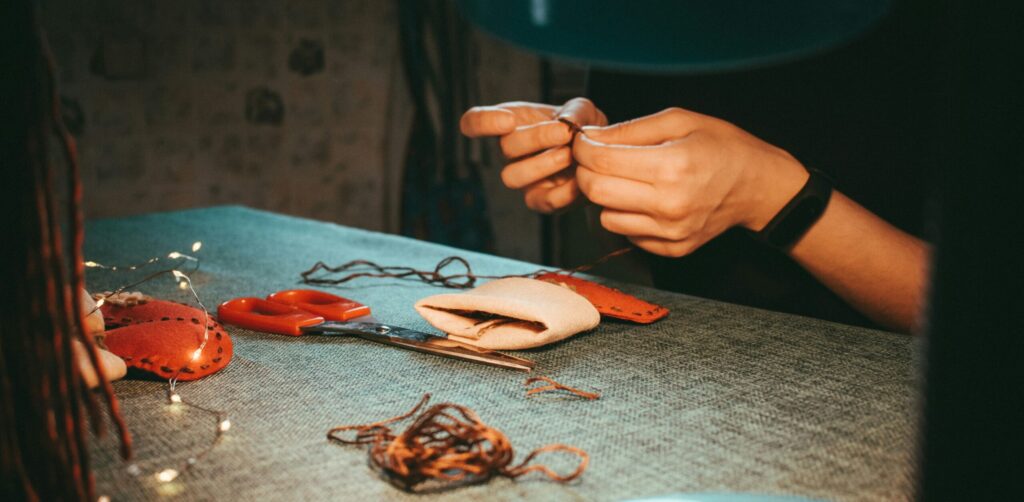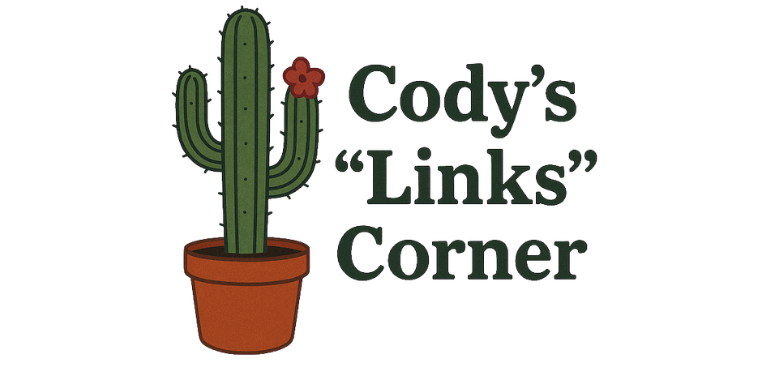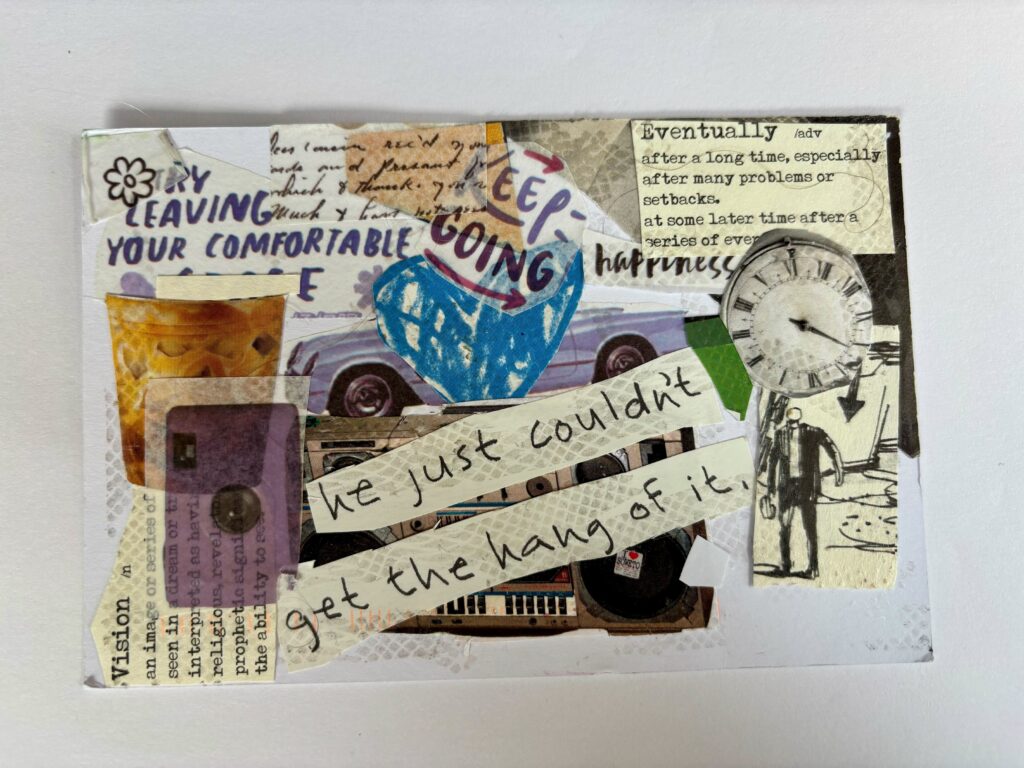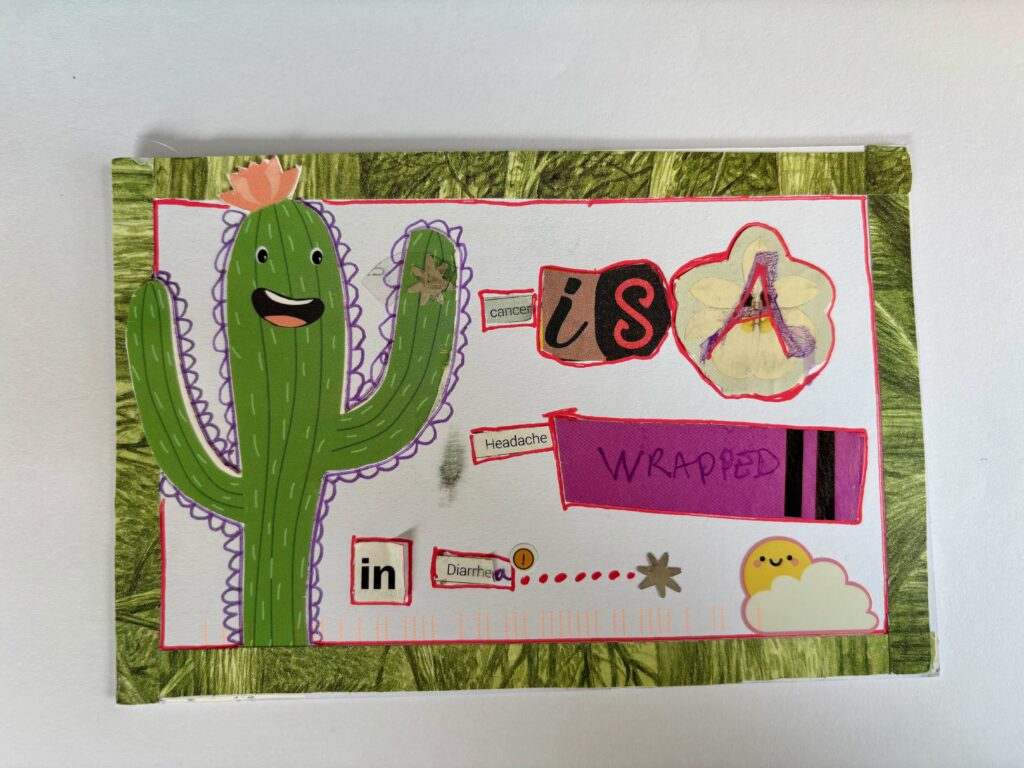I wanted to start off this post with a video where Nick Ross, an AYA cancer survivor, talks about dating and disclosing his cancer history:
“Cancer is my heaviest baggage. It’s my crazy ex-girlfriend that tried to kill me, and I would hate it if she ever came back, but she’s crazy, so she might. And I feel that I have to tell you at some point, so when’s the right time?… If I tell you right away, it might scare you off…but if I like you, I want you to know everything about me, and cancer is a big part of who I am. So, there it is. How to navigate when the right time is? It’s complicated.”
Like Nick, many AYA (adolescent and young adult) cancer survivors struggle with whether and/or how to disclose their cancer history to new dating partners—so if you are feeling this way too, know that you are not alone! In fact, in addition to fear of rejection after disclosure, concerns about when, how, and how much to tell dating partners about their experience with cancer are among the most common in AYA cancer survivors. Sharing about the impact of cancer on one’s life has the potential to shape AYA cancer survivor’s development after treatment, so, in the context of dating, the question becomes: to disclose, or not to disclose? And if the former is chosen: when should one disclose about their cancer history?
Self-disclosure is the act of revealing personal thoughts, feelings, and experiences to another person. Self-disclosure is integral to the development of intimate relationships—like Nick said, “If I like you, I want you to know everything about me”—and there are many benefits associated with self-disclosure (for example, it can promote identity development, feelings of self-worth, greater social support, etc.). Disclosure may also enable AYA cancer survivors to integrate cancer into their sense of self. There are, however, negative implications also associated with self-disclosure (for example, the recipient of the information may reject the discloser), so it makes sense that it can also seem scary.
Fears Associated with Disclosing
In fact, fear of rejection is a concern that many AYA cancer survivors mention when they think about what scares them about disclosing their cancer history to a dating partner.9 A recent study featuring 18 survivors of childhood cancer ages 18-25 illuminated other reasons why AYA cancer survivors fear disclosing their cancer history with others.10 In this study, survivors spoke about multiple challenges related to disclosing their cancer history (see below for a table of these fears and what a few AYA cancer survivors had to say about them).
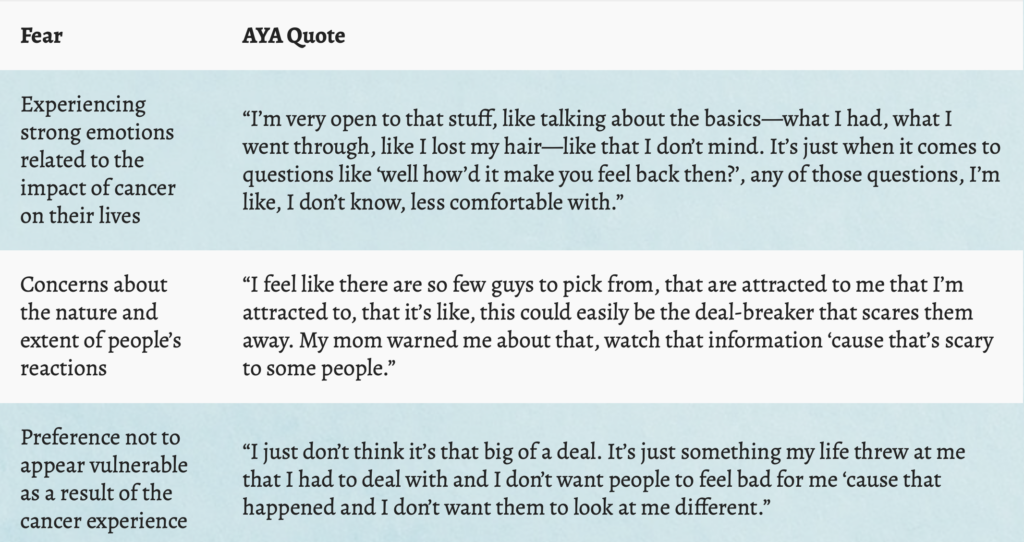
Whether AYA Cancer Survivors Choose to Disclose
Given the various concerns associated with disclosing a cancer history, determining whether to disclose is (as Nick mentioned) complicated. In another study featuring 26 AYA cancer survivors, researchers found that when deciding whether or not to disclose their cancer experience with someone, the most common answer was “it depends.” These survivors expressed that if not prompted by others, their cancer experience was typically not introduced into conversation. Additionally, they were more likely to disclose if they had a shared experience with the potential recipient or if the survivor felt that the relationship had the potential for quality and depth. When the survivors did choose to disclose and the recipient reacted positively, survivors mentioned that the disclosure was helpful, positive, and comforting.
When to Disclose: The Recipient’s Perspective
So, let’s say that you really do like the person, and you see the potential for a high-quality and deep relationship with them, so you decide to disclose your cancer history. Now the question becomes, when is the best time to disclose this? The first date? The third date? Well, in a study featuring dating website members and college students, researchers set out to determine when people think the best time for a potential dating partner to disclose their cancer history would be. Of the 593 people surveyed, they found that most people wanted to hear about the cancer diagnosis after a few dates and that a very small percentage (2-5%) wanted to hear about it before the first date took place.
So…I want an answer already! Should I disclose or not? And if I do, when should I disclose?
If it doesn’t feel like the research is providing a clear-cut, formulaic answer regarding 1) whether or not to disclose a cancer diagnosis to a new dating partner and 2) when to disclose this diagnosis, your intuition is correct. Like the researchers mentioned previously, the right answer to these two questions might be: it depends. If you really like the person and see the potential for a relationship with them that is characterized by quality and depth, then maybe you should consider disclosing this to your dating partner, perhaps after a few dates, as self-disclosure is key to the development of close relationships4, and is associated with various other positive outcomes.7
These relational dynamics are complicated and also largely understudied in the research12, and future research may help to further illuminate the experience of self-disclosure in AYA cancer survivor’s romantic relationship.
I am going to leave you with the following interview featuring Dr. Sage Bolte, a sexual health and oncology counselor, as I feel she has some helpful insights (that also appear to be backed by the research mentioned above) that may help AYA cancer survivors to navigate self-disclosure in a dating relationship.
“I really encourage people to disclose earlier rather than later just because there are people who may not be able to handle the fact that you’re a survivor and that’s not because they’re a bad person it’s just because they’re not the right person and they don’t have the capacity to manage it. I’ll often say if they don’t have the capacity to manage that, they’re probably not going to have the capacity to manage other crises that are bound to happen in a lifetime. So, move on to the next who can.”
This piece was written by Ximena Gisemann and originally published on her blog, Support for AYAs (SAYA). To see a full reference list or to read more, visit her blog.



